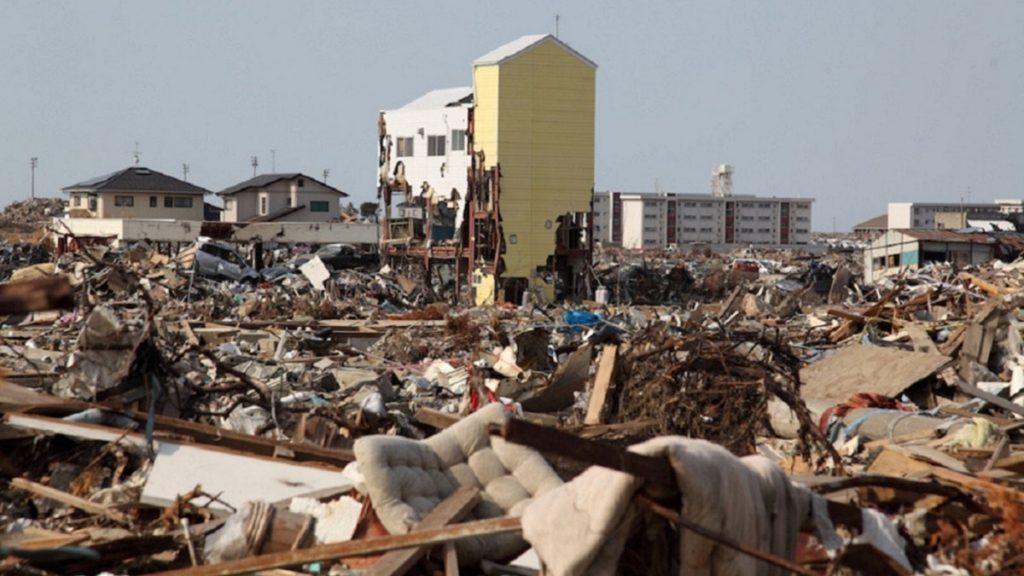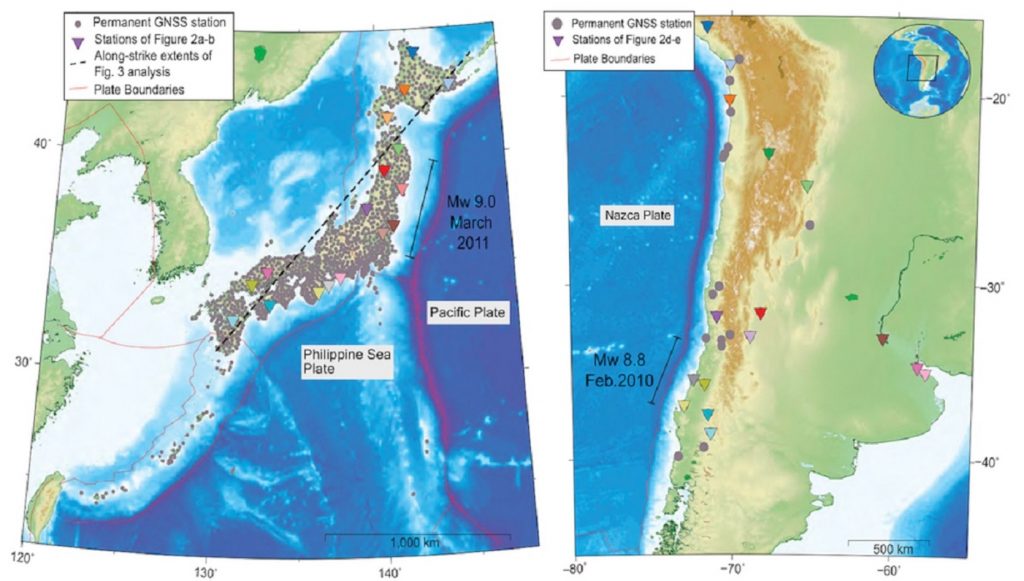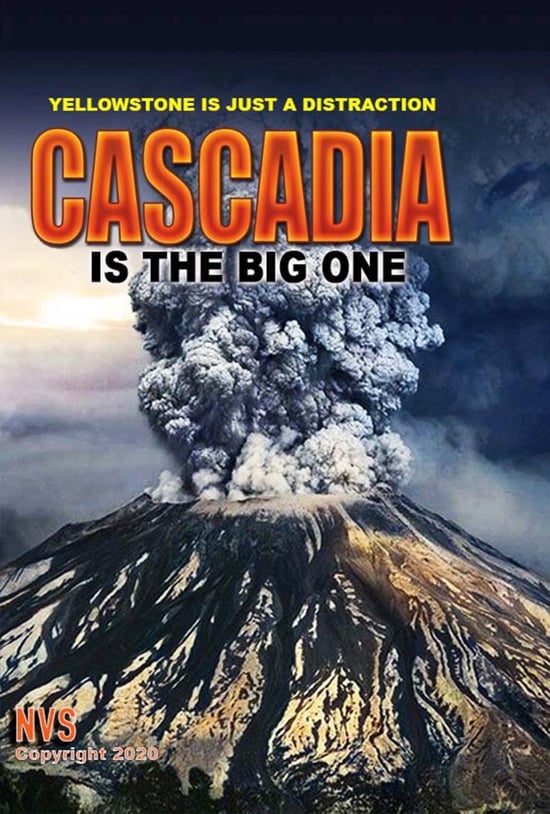‘Wobble’ may precede some great earthquakes…
Japan shifted east, west, east before devastating 2011 quake and tsunami. Same in Chile in 2010.
A new scientific study shows that big “wobble” may precede some great earthquakes.
The land masses of Japan shifted from east to west to east again in the months before the deadly and catastrophic M9.0 earthquake in 2011.

Those movements, what researchers call a “wobble,” may have the potential to alert seismologists to greater risk of future large subduction-zone earthquakes.
These destructive events occur where one of Earth’s tectonic plates slides under another one.
That underthrusting jams up or binds the earth, until the jam is finally torn or broken and an earthquake results.
In 2011, Japan had one of the largest and most robust GPS monitoring systems in the world.
That system provided ample data, and allowed the research team to identify the swing the land mass made in the months leading up to the earthquake.
Other countries, including Chile and Indomesia (Sumatra), which were hit by devastating earthquakes and tsunamis in 2010 and 2004, respectively, had much less-comprehensive systems at the time of those disasters.
The findings were published today, April 30, in the journal Nature.
The Japan’s wobble
“What happened in Japan was an enormous but very slow wobble – something never observed before,” said Michael Bevis, a co-author of the paper and professor of earth sciences at The Ohio State University.
The wobble would have been imperceptible to people standing on the island, moving the equivalent of just a few millimeters per month over a period of five to seven months. But the movement was obvious in data recorded by more than 1,000 GPS stations distributed throughout Japan, in the months leading up to the March 11 Tohoku-oki earthquake.
The research team, which included scientists from Germany, Chile and the United States, analyzed that data and saw a reversing shift in the land – about 4 to 8 millimeters east, then to the west, then back to the east. Those movements were markedly different from the steady and cyclical shifts the Earth’s land masses continuously make.
“The world is broken up into plates that are always moving in one way or another,” Bevis said. “Movement is not unusual. It’s this style of movement that’s unusual.“

The wobble could indicate that in the months before the earthquake, the plate under the Philippine Sea began something called a “slow slip event,” a relatively gentle and “silent” underthrusting of two adjacent oceanic plates beneath Japan, that eventually triggered a massive westward and downward lurch that drove the Pacific plate and slab under Japan, generating powerful seismic waves that shook the whole country.
The researchers analyzed similar data from the 2010 Chile earthquake, and found evidence of a similar wobble.
Although we don’t know if all giant earthquakes are preceded by wobbles of this kind, I would suggest they start putting thousands of GPS stations along the Cascadia Subduction Zone to monitor the dangerous subduction zone, because it’s already being hit by slow slip events.
I would recommend you to watch the new documentary “Cascadia the Big One” to better understand the destructive and powerful forces you are facing when living along the Pacific Northwest (follow the link above or click on the picture below):

More geology news on Strange Sounds and Steve Quayle. [OSU, Nature]











